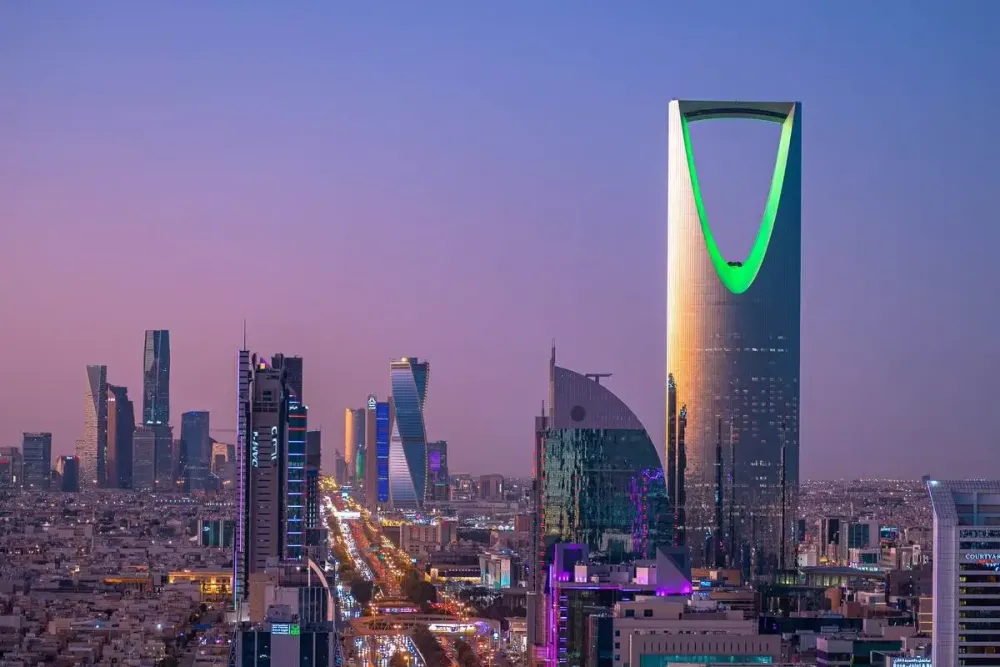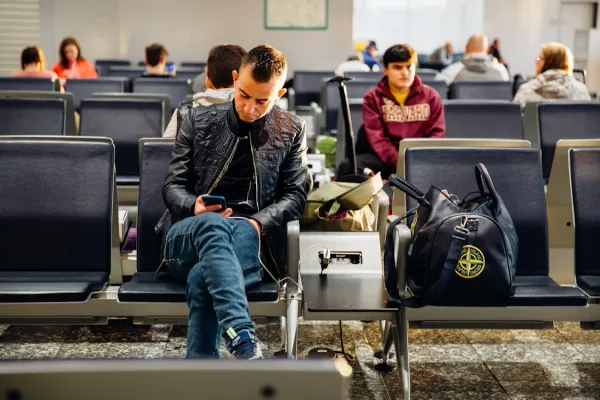Can Saudi Arabia Become A Premier Tourist Hotspot In 2025?
Lately, factors affecting tourism in Saudi Arabia have been questioned much. Every year, nearly 2 million to 3 million Muslims congregate to partake in the Hajj-to them, a pilgrimage of five days each year that every Muslim must strive to attend at least once. A year ago, temperatures were more than 50 degrees Celsius, with over 1,300 deaths, many possibly from heat stress. Authorities have been criticized for not taking care of the pilgrims adequately.
Last year's tragedies will not deter the faithful from coming into the desert kingdom. About 13.5 million have visited in 2023 for Umrah, a minor pilgrimage that runs throughout the year. The conservative nation, however, does not rank high on many non-Muslim travelers' wish lists. Saudi Arabia conjures images of oil, royal prerogative, and capital punishment instead of sightseeing and luxurious resorts.
The Saudi government wishes to change this perception. One pillar of Vision 2030-an economic reform agenda unveiled in 2016-is tourism. Crown Prince Muhammad bin Salman (MBS), who is the chief architect of this vision, seeks to catalyze emerging industries to generate jobs and sap oil's strength from the economy. Vision 2030 is also perceived as a way of improving the kingdom's and MBS's brand.
Glaring investment figures: the government investing in the tourism sector to the tune of $800 billion, some of which might be spent on Neom, the giant developmental project in the northwest that has known its fair share of challenges. From a mere 3.6% in tourism's contribution to the Gross Domestic Product in 2019, the figure has risen to 4.5% in 2023, with an aim to hit 10% by 2030. If met, this would mean a much larger contribution to the economy than countries such as France and Spain. But, the big question remains: There is enough supply, but how much demand?
At present, most tourists are locals. Out of 100 million trips made in-country in 2023, there are 79 million being carried out by nationals. There is a rise in international tourist arrivals quickly, albeit from a negligible base compared to its competitors. The UN World Tourism Organization indicated that Saudi Arabia was third for tourism growth in 2023 against the pre-pandemic level. The target is to attract 150 million tourists a year by 2030, targeting high-end tourists from the nearby region, especially China, Europe, and India.
Most international passengers coming into Saudi Arabia do maintain some sort of link to the country; in 2022, only 2.5 million people traveled there for pure leisure as opposed to business, religious, or family visits. The kingdom has a long way to go to rival destinations like Britain, which attracted 12 million leisure tourists in that year.
There have been some fundamental shifts in the kingdom's outlook toward outsiders. It introduced much freer visa-online applications for citizens of 66 countries for stays up to 3 months, with visas once almost unobtainable and restricted to pilgrims visiting Mecca and Medina. The Gulf Cooperation Council has plans for a regional 'visa-counterpart' for the Schengen visa, which shall allow travelling among the member countries on one permit.
Saudi Arabia used to promote its Islamic heritage, but now it is also promoting its pre-Islamic heritage. Al Ula, some 350km away from Medina, boasts some of the best remains of the Nabataean civilization after Petra in Jordan. Over 2000 years ago, the Nabataeans carved tombs into the rock with inscriptions, and sphinxes and griffins that have all stood the test of time. The tour guides will tell you about sites associated with the goddessess Uzza, Manat, and Allat.
Allan Schwartzman, an advisory board member for the Royal Commission for Al Ula, believes that these ancient sites give Saudi Arabia an edge over regional rivals. In other countries, religious extremists have destroyed pre-Islamic history, such as Palmyra in Syria and the Buddhas of Bamiyan in Afghanistan. However, not everyone supports this new approach. Saad al-Fagih, a dissident in exile, claims that MBS is trying to sponsor a pagan revival.
A decade ago, visiting Al Ula was a challenging experience. One Saudi woman recalls the only hotel being so unappealing she slept in her car. Today, visitors can take hot-air balloon rides over the ruins at sunrise, travel in air-conditioned buses, and enjoy amenities like gelato stands. Female guides now share insights into burial rites, and music plays in Al Ula’s old town, giving it a more tourist-friendly feel.
Luxury accommodation is central to the tourism vision. One hotelier suggests Saudi Arabia should be seen as the new Maldives, pointing to the turquoise waters of the Red Sea. At the newly opened St Regis on a private island in Al Wajh Lagoon, guests can stay in villas over the water. Hilton plans to quadruple its hotels in the kingdom to 100, many of which are under construction. Despite being an oil-rich country, these resorts emphasize their eco-credentials, such as banning single-use plastics and protecting coral reefs.
Saudi Arabia is also investing in big sporting events to attract visitors. In 2029, it will host the Asian Winter Games at a planned mountain resort in Neom and is bidding to host the 2034 football World Cup. Additionally, the government aims to establish Saudi Arabia as a cultural hub, building museums and hosting music events like Soundstorm, a desert rave. The mirrored concert hall Maraya near Al Ula has hosted artists like Lauryn Hill.
Celebrity chefs have opened restaurants in Riyadh to cater to visitors' tastes. Michelin-starred Indian restaurant Gymkhana, New York brunch spot Sarabeth’s, and Parisian café Angelina all have branches in the capital.
The tourism board has thought carefully about creating an attractive destination. However, challenges remain. Much of the country is unbearably hot for large parts of the year, and climate change is exacerbating this. Many Western tourists also enjoy a cold beer by the pool, but Saudi Arabia remains almost completely dry, though there are rumors that alcohol laws might change, as they have in nearby UAE.
The country's image is another hurdle. Incidents like the murder of journalist Jamal Khashoggi, political repression, and restrictions on women's rights still dominate many outsiders' perceptions. Many are unaware of the recent changes in Saudi Arabia. Questions about attire and accommodation norms persist, but improvements are being made.
Some potential visitors are concerned that tourism, like sports and big art projects, is being used to whitewash the country's human rights record and fossil fuel dependency. Social media influencers faced backlash for promoting the country, and allegations of land clearances for The Line project in Neom will not help.
The new tourism slogan urges people to “Go Beyond What You Think.” While this may be a difficult ask for many travelers, Saudi officials are banking on the age-old belief that if they build it, people will come.





